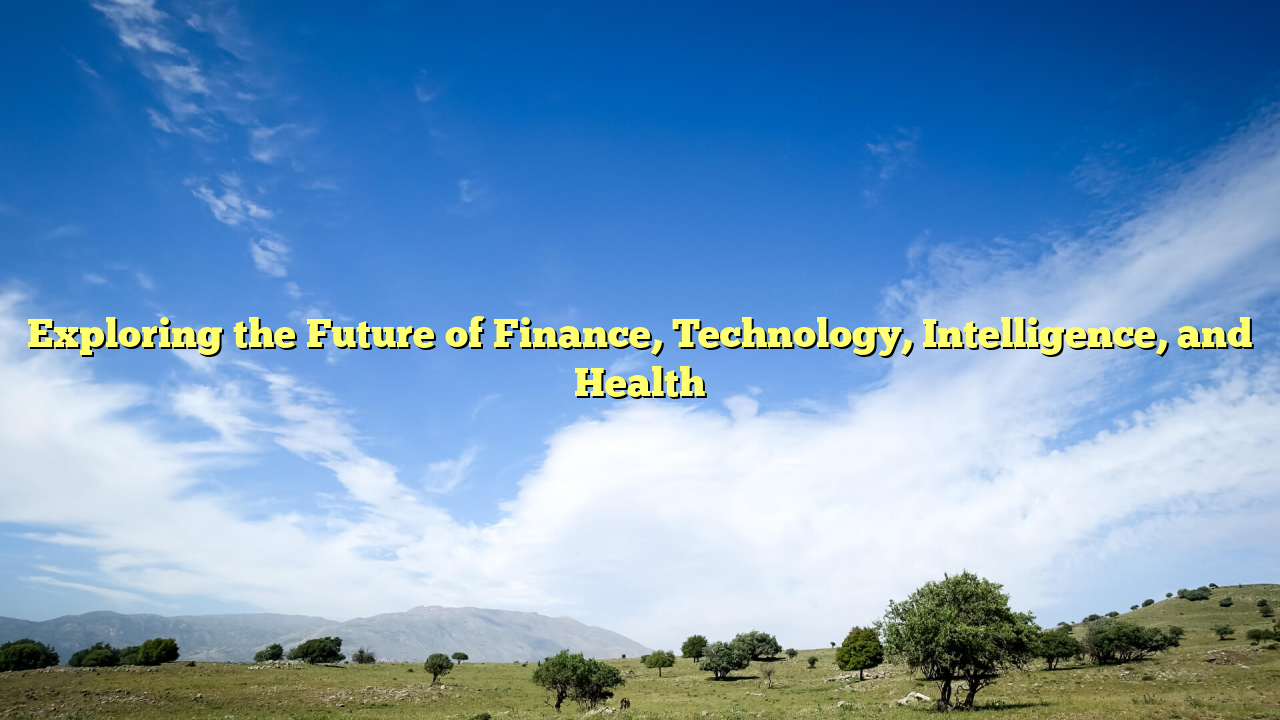—
Introduction
The continuous growth in finance, technology, intelligence, and health is paving the way for a new era in human progress. These fields are not isolated; they overlap and influence each other, creating a dynamic environment of opportunities and challenges. In this article, we explore how these domains interact and the future possibilities they present.
—
Finance: The Evolving Landscape
As financial markets continue to evolve, technological advancements are revolutionizing how we save, invest, and manage money.
Cryptocurrencies and blockchain technology are reshaping the financial system in profound ways. Cryptocurrencies, such as Bitcoin and Ethereum, have disrupted traditional financial systems by providing decentralized, borderless alternatives to traditional banking. However, the rise of cryptocurrencies presents both opportunities and challenges for investors, policymakers, and regulators.
Fintech innovations have made financial services more convenient and accessible to people around the world. These companies use technology to streamline banking, payments, lending, and investment services. With the integration of AI and machine learning, fintech firms can offer tailored financial products that meet the specific needs of consumers.
—
Technology: Driving Innovation Across Sectors
The role of technology in shaping our world cannot be overstated; it is a key driver of progress in many industries. From automation to artificial intelligence, technology is enabling solutions that were once thought impossible.
AI technologies are improving efficiency and accuracy in fields like healthcare, finance, and customer service. The application of artificial intelligence in business is revolutionizing the way companies operate and interact with consumers.
In the healthcare sector, AI is playing a pivotal role in diagnosing diseases, predicting patient outcomes, and improving the quality of care. Additionally, smart healthcare devices and telemedicine are expanding access to healthcare services, especially in underserved areas.
—
Intelligence: Human and Artificial
Human intelligence and artificial intelligence are both essential components of the technological revolution. While human intelligence is characterized by creativity, problem-solving, and emotional intelligence, artificial intelligence mimics some of these abilities, creating a new form of computational intelligence.
AI is becoming increasingly capable of performing tasks that were once exclusive to human intelligence, such as pattern recognition and decision-making. Deep learning algorithms, for example, are enabling machines to learn from vast amounts of data and make predictions or decisions based on that data.
While AI is transforming industries and society, there are concerns about its impact on the workforce and human autonomy. Bangsawan88 need to be addressed through ethical guidelines, regulations, and continuous human involvement in decision-making.
—
Health: A Focus on Well-being
The health sector is undergoing a significant transformation due to technological advancements and a greater focus on overall well-being.
One of the key trends in healthcare is the move toward personalized medicine. The use of genetic data is allowing healthcare providers to create customized treatment plans for patients, improving outcomes.
There is a growing emphasis on preventing illness rather than just treating it. Smart devices and health trackers are allowing individuals to monitor their health data and make informed decisions about their lifestyle.
—
Conclusion
The future of finance, technology, intelligence, and health is interconnected, presenting both challenges and exciting opportunities. However, as these advancements continue, it is important to consider the ethical implications and ensure that they are used for the greater good of society.
The evolution of finance, technology, intelligence, and health will play a critical role in shaping a sustainable and prosperous future.
